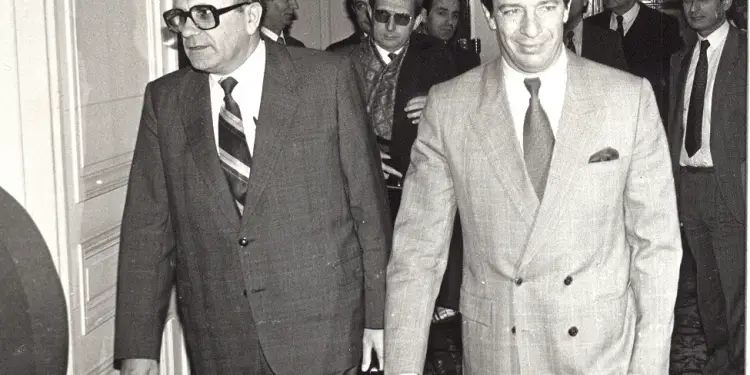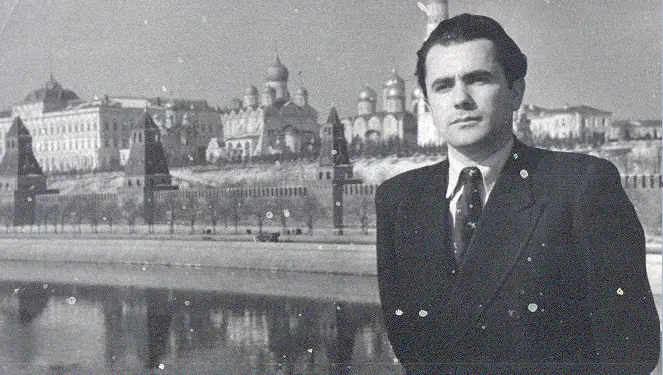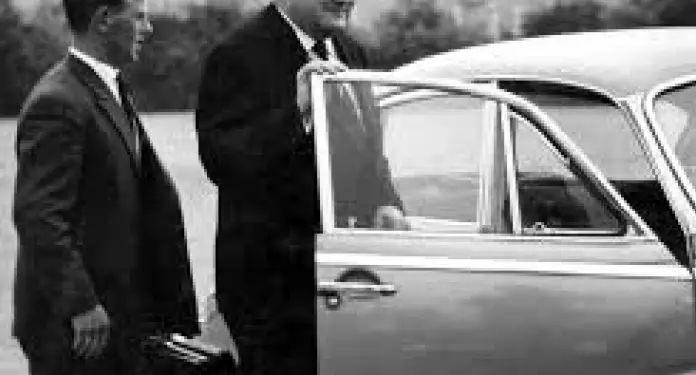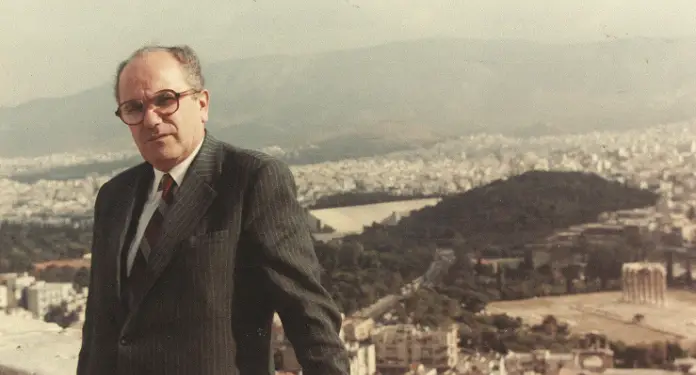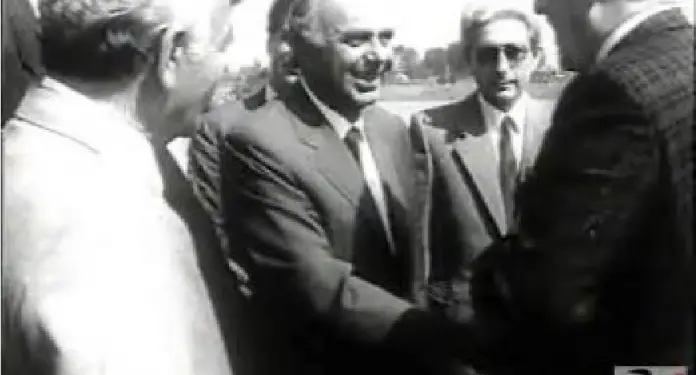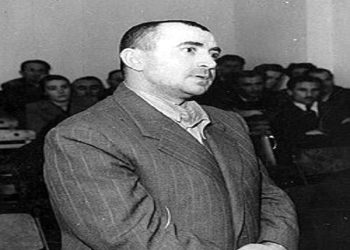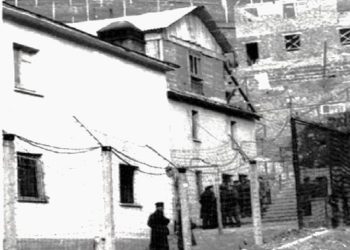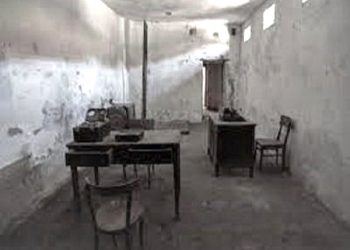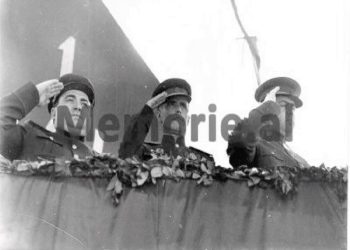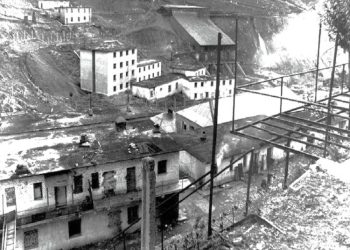Dashnor Kaloçi
Memorie.al/ publishes the memoirs of the former career diplomat and Deputy Minister of Foreign Affairs, Sokrat Plaka, who for more than 30 years, served as Albania’s ambassador to several countries around the world. His testimonies about the secret talks with the Ambassador of the Federal Republic of Germany in Belgrade, and the negative response of official Tirana to the assistance that Bonn offered at that time for the small communist state of the Balkans, after Enver Hoxha himself had given permission for those talks. Ambassador Plaka’s meeting with Prime Minister Mehmet Shehu in 1979 during an hour-long conversation in his office, where he authorized Ambassador Plaka to start talks immediately, in the hope that the German side would pay the war reparations. How the Albanian side delayed the talks with the German side, which was very ready for the respective diplomats to meet in Bonn, Vienna or Belgrade, raising all kinds of obstacles, until the German ambassador in Belgrade was transferred to Portugal and in his country, another diplomat came, but already with other instructions from the government of the Federal Republic of Germany …!
It is already known to all Albanians the private visit made to our country in the mid-80s by the former Prime Minister of Bavaria, Josef Strauss (with his two sons), who was one of the first politicians of Western countries who was able to tear down the ‘iron curtain’ of Enver Hoxha’s communist regime before the 1990s after a permit granted by Enver Hoxha himself in the last years of his life. That visit is ingrained in the minds of Albanians, not only for the fact that a foreign politician of that rank from a Western country, violated for the first time in our country, but for what he offered to senior officials of the communist leadership of Albania. of that time. As rumored in the close quarters of senior officials of that time, and fully illuminated after the ’90s by the memories and testimonies of some of the leaders of the Albanian state who held talks with the senior German politician, the visit of The Strauss was neither more nor less than the ‘outstretched hand’ of a powerful Western country, to help one of Europe’s poorest and most isolated countries. And to that help, which the German state offered as a kind of apology for what it had caused to this small Balkan state during the Second World War, the top leaders of communist Albania, responded negatively!
The extreme ideological dogmatism of the Albanian officials did not allow them to “bow before the imperialists” and that event has already remained in the historical memory of the Albanians, as the lost chance of opening our country with the West. But was this the only case that communist Albania lost in this way? “No.” This statement is made by the former career diplomat and at the same time Deputy Minister of Foreign Affairs, Sokrat Plaka, who for more than 30 years, has served as Ambassador of Albania in some of the most important diplomatic headquarters of that accredited time in western countries. In his memoirs that Memorie.al publishes in this article, Mr. The old woman introduces us to his secret talks with two of the German ambassadors in Belgrade, in the years 1977-’78, which had to do with a normalization of relations between the two countries and the negative response of official Tirana, for the help that offered by Germany!
Memoirs of former Ambassador Sokrat Plaka
“Meetings with the new German ambassador in Belgrade”
I met him at the diplomatic reception and on this occasion, I expressed the joy I would have to have with him in dealing with the problems of relations between the two countries. “We will talk soon,” he said. Graber was a close friend of Willie Brand, a man of personality and correctness. I asked him about Puttkamer and he limited himself to saying that he had been appointed ambassador to Portugal, without making any further assessment. I was impressed by this laconic answer even though it came from a higher post than Puttkamer. And indeed, after settling well in his functions as ambassador, Graber visited me at the embassy. From the beginning I was impressed that he had taken with him a very large blue folder, with a lid over 10 cm thick. That could have at least 2800 sheets of deeds, bound on all four sides with white ribbons. To say the least, such an action was unusual and seemed to be pretended with the intention of figuratively believing a certain purpose. At first the conversation was warm and permeated by the mutual respect that characterized our personal relationship, until my departure from Belgrade. Then Graberi, when he entered the topic of reparations, said: “I do not know, but what Puttkameri told you, do not appear in the files of the embassy” and browsed the acts in the archive files, as if he had left a part of it unseen more. I told him it did not seem normal to me. “The archive files of the embassy are internal matters,” I noted. It is true that since the time we talked to Ambassador Puttkamer about two years ago, a lot of water has flowed, especially in terms of our country and so now we are in completely different political-strategic conditions. I mentioned that: ‘partly this problem was also discussed in the presence of the respected Swedish ambassador, Lewenhaupt, that my meetings with Puttkamer took place in the residences of the ambassadors of Afghanistan, Iraq and Switzerland, in the embassy of R.F. of Germany in Belgrade and therefore nothing calls into question either the meetings or their content; “If you have changed your position, that is your right, but that does not presuppose the denial of talks held in the past,” I said.
Graber: “I’m sorry, but the situation has changed …”!
Ambassador Graber said: “I’m sorry that this’s the case, but I want to say that we are taking care of everything in the person of Von Puttkamer, and in terms of what you have personally said, about we trust you completely and do not question anything. I want to emphasize with my honor that nothing affects the accuracy and honesty of the Albanian side, but I am reiterating that we have charged Ambassador Puttkamer with these responsibilities “. Graber spoke while wiping away the sweat, which makes him cringe because he felt himself in a difficult position. Various arguments were exchanged in this conversation, but Graber always took over the charge of the German side everything that differed from what Puttkameri had said before. At the end of the long conversation, Graber said that: although the German government wants to continue the dialogue with the Albanian government on these issues in Belgrade between the ambassadors of the two countries, but that this dialogue be free in a different way from Puttkamer, aiming to defend its own government, in the form of contacts for the exchange of opinions. To concretize the above, he also submitted a short memorandum with the proposal for such talks. These were some issues of the dialogue with Graber, about which I informed in detail Tirana. Understandably, Von Puttkameri was not a profane ambassador who could make mistakes of this nature; on the contrary, he was quite capable, prudent, competent, and correct. In 1977, when Tirana thought it could benefit something from R.F. German, to face the economic difficulties, wanting to take advantage of the conditions of 1977, it was too late, ‘the dove had flown out of the hands.
Elder: “Tirana was hindered by dogmatism”
Now the form of the political initiative had to be changed with new ideas, as well as its content, but Tirana could not face this challenge, because it could not break away from dogmatism. As a result, our attitude remained eclectic, the best “possible” but also effective. We met several times with Ambassador Graber on the issue of reparations, our relations were good and correct, but it was clear that the Germans wanted something new, new ideas, an initiative with original content, which obviously required the re-adoption of Albanian politics in terms of new, at least in those that other Eastern European countries had accepted. R.F. The Germans supported the independent policy of Albania because objectively it was in line with the interests of the West, but in the conditions of Brezhnev’s international policy, there was no guarantee for the perspective of Albania, especially if Yalta was considered. So, without an innovative political initiative by the Albanian leadership, the way could not be opened to solve Albania’s cardinal problems, such as opening reparations, monetary gold, economic financing loans, so things did not move.
“Solution” of problems by the Albanian ambassador in Vienna
The solution was “given to us” by the Albanian ambassador in Vienna. The latter had informed the Ministry of Foreign Affairs that he had a close friend the ambassador of R.F. German in Austria, who was also “anti-fascist”. I also understood the desire of our ambassador to address the issue himself. At this time, I was on duty in Tirana. The Minister called me and after discussing some issues of our relations with Yugoslavia, Kosovo and the position on solving the problem of monetary gold, he told me that because the German ambassador in Vienna seemed predisposed to solve the problem of reparations, this issue will we pass it to our embassy in Vienna, and if Graber raised the problem with me, I would tell him: “Since the ambassadors of our two countries in Vienna know each other well and that they have greater opportunities for resolving the problem of reparations, “We wish them success in this task.” Of course, I could have a lot to say, but they would rate it as heresy. I already had about 5 years as ambassador to Belgrade and could be replaced. But if such a change were to be made to a greater power and to a prominent personality like Graber, perhaps it should have been thought differently and better.
Graber: “Germany does not have two policies”
I returned to Belgrade and after about two weeks the embassy of the FRG informed me that the German ambassador wanted to pay me a visit the next day. As usual, I informed the Ministry of Foreign Affairs, which instructed me to tell Graber what the minister had ordered from me in Tirana. I received Graber and after the welcome conversation, I informed him exactly how much the MFA was instructing me. Of course, I thanked him for the close cooperation as well as for the desire and contribution of the federal government and his personal one to advance the relations between the two parties. When he left, I escorted the ambassador to the outer gate of the embassy; I appreciated once again the friendship, his role, I emphasized that we have nothing for him, that the transition was formal and was done to better follow the issue. After hearing my announcement, Graber was very surprised and touched. He did not speak much, but only said: “What do you remember, that the federal government has two policies, one for Belgrade and the other for Vienna, to know that our policy is made by the federal government and not the ambassadors”. He then made assessments of the relationship as ambassadors, which in fact continued to be good with this distinguished ambassador and personal friend of Vili Brand. Unfortunately, the Vienna talks did not last long and did not yield results./Memorie.al




